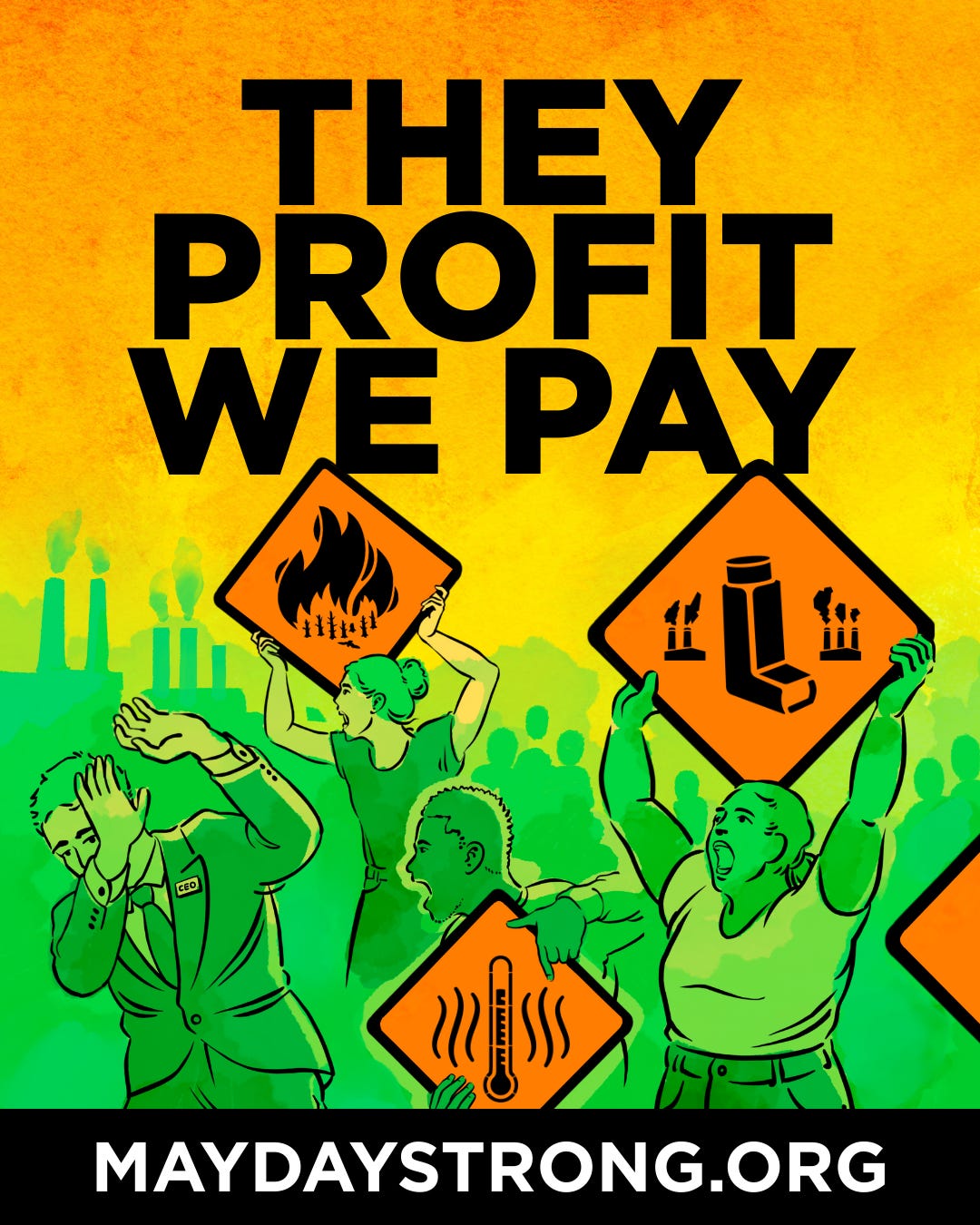Climate Wins Mean Nothing If Workers Lose
On May Day, workers around the world rise up to demand dignity, safety, and fair pay. This year, as we rally with labor unions and community allies, one thing is clear: we can’t build a clean energy future by leaving workers behind.
Right now, fossil fuel CEOs and billionaire elites are pouring money into an anti-worker agenda that hands tax breaks to the wealthy, props up polluting industries with billions in subsidies, and guts essential programs like Medicare and Medicaid. At the same time, they’re working to villainize climate action and spread myths about the so-called benefits of the fossil fuel economy. But here’s the truth: fossil fuel jobs aren’t what they used to be — and clean energy jobs won’t become what they need to be unless we organize to make them better.
A 2023 survey from the worker-led group True Transition offers an unfiltered glimpse into life in the oil and gas industry. Workers describe a world of constant layoffs, shrinking paychecks, and dangerous conditions. Some were forced to work through serious injuries. Others were pressured to ignore safety violations or endure exhausting shifts and long commutes. One worker, with 25 years of experience, returned to the same job after COVID to find his pay slashed from $29 an hour to $17. Another reported being blackballed for raising safety concerns.
The so-called “stability” of fossil fuel work is a myth. But even with its dysfunction, fossil fuel work still pays better than most clean energy jobs.
In California, for example, fossil fuel workers made an average of $130,000 annually in 2021, compared to $86,000 for clean energy workers. One key reason for this disparity is that fossil fuel jobs have historically been unionized, securing higher wages and stronger benefits. In contrast, many clean energy companies actively resist unionization — hiding behind green branding while cutting corners on labor standards.
This has created a dangerous paradox: we urgently need a clean energy transition to survive the climate crisis, but we’re building it on the backs of underpaid and underprotected workers.
That’s why we’re fighting for a just transition this May Day — one that lifts wages, protects workers’ rights, and creates a real path forward for fossil fuel workers. That means passing policies like New York’s Build Public Renewables Act and Oregon’s House Bill 4080A that tie clean energy investments to strong labor standards. It means investing in programs that retrain and re-employ oil and gas workers in critical climate work, like plugging abandoned wells, maintaining resilient power grids, or building offshore wind.
We also need to be honest about labor practices in the clean energy sector. When clean energy companies cut corners on wages, benefits, and union labor, they erode both worker rights and public confidence in the transition itself.
That’s exactly what the fossil fuel industry wants. They want to divide us — pitting labor against climate, workers against environmentalists — so no one holds them accountable.
But we know the truth: the fight for workers’ rights and the fight for climate justice are one and the same. Both call on us to reject a system that puts profits over people and to build something fair, sustainable, and truly inclusive in its place.
A just transition doesn’t mean choosing between a livable planet and a stable job. It means fighting for both — and organizing until we win. Our communities, our climate, and our future depend on it.
Find your local May Day action here and join us in demanding clean air, living wages, and union power for all.


